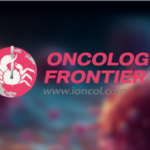At the 2023 American Association for Cancer Research (AACR) annual meeting held on April 17, groundbreaking long-term follow-up data from studies on the Chinese innovative PD-1 inhibitor, Sintilimab, was unveiled. The findings span from phase III clinical trials for esophageal cancer (ORIENT-15) and gastric cancer (ORIENT-16). The results from these trials have set new longevity records for first-line treatments of these cancers in China.
Esophageal Cancer – ORIENT-15 Results:
As of August 28, 2022, a total of 690 participants were randomized with a median follow-up period of 32.2 months.
Overall, when combined with chemotherapy, Sintilimab demonstrated a significant median overall survival (mOS) extension of 4.6 months compared to the placebo (mOS: 17.4 months vs 12.8 months). It reduced the death risk by 34% (HR of 0.66, p<0.0001) with a 2-year overall survival rate of 41.4% vs 22.9%.
For those with high PD-L1 expression (CPS≥10), the combination of Sintilimab and chemotherapy showed a significant mOS extension of 3.9 months (mOS: 18.4 months vs 14.5 months) and reduced the death risk by 37% (HR of 0.63, p=0.0001) with a 2-year survival rate of 44.1% vs 25.1%.
The safety characteristics matched the interim analysis and showed no new safety concerns.
Gastric Cancer – ORIENT-16 Results:
As of September 2, 2022, 650 participants were randomized, and the median follow-up time was 33.9 months.
The combined therapy significantly reduced the death risk in the CPS≥5 group (HR 0.587 [95% CI: 0.467, 0.738]; P<0.0001) and in the overall population (HR 0.681 [95% CI: 0.571, 0.812]; P<0.0001). The mOS increased by 6.3 months (mOS 19.2 months vs 12.9 months) for the CPS≥5 group and by 2.9 months (mOS 15.2 months vs 12.3 months) for the overall group.
In the overall group, the 2-year and 3-year survival rates were 37.6% vs 20.6% and 26.0% vs 10.7% respectively. For the CPS≥5 group, the rates were 43.6% vs 22.0% and 29.0% vs 10.7% respectively.
The safety profile was consistent with the earlier analysis, indicating no new safety signals.
Conclusion:
China faces a high prevalence of esophageal and gastric cancers, with many patients being diagnosed in advanced stages. The introduction of immunotherapy, specifically the Sintilimab monoclonal antibody, has revolutionized the treatment landscape, significantly extending survival times, especially for patients with high PD-L1 expression. These innovative treatments, now included in the national health insurance, offer hope to many patients by making advanced therapies more accessible and alleviating the financial burden.

